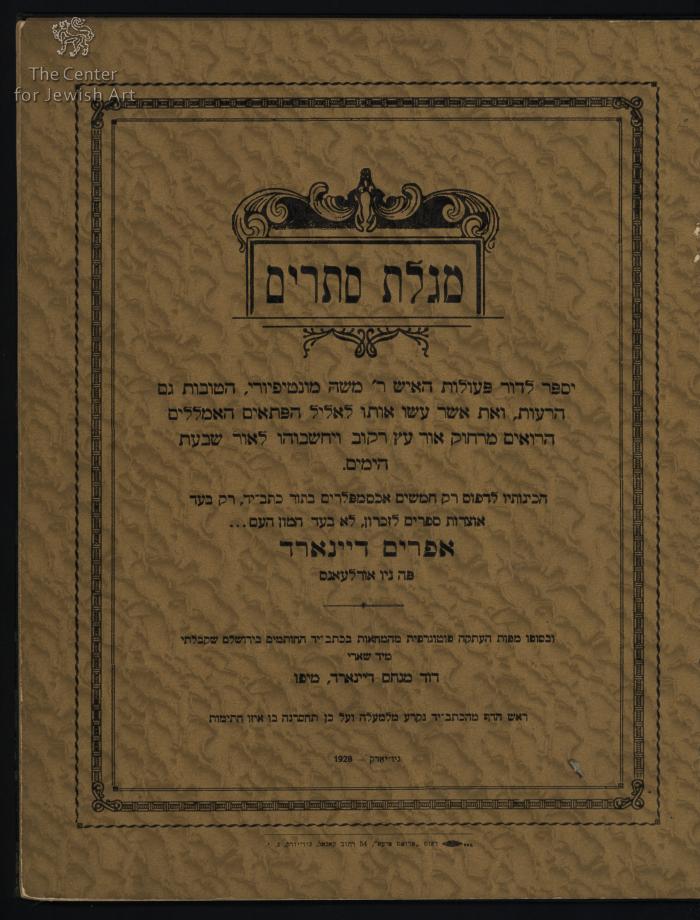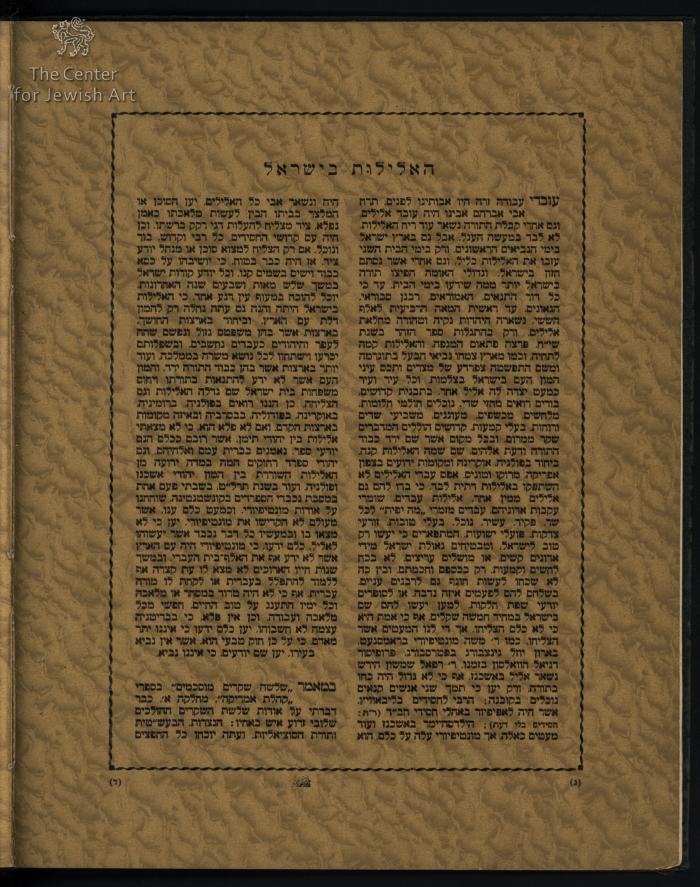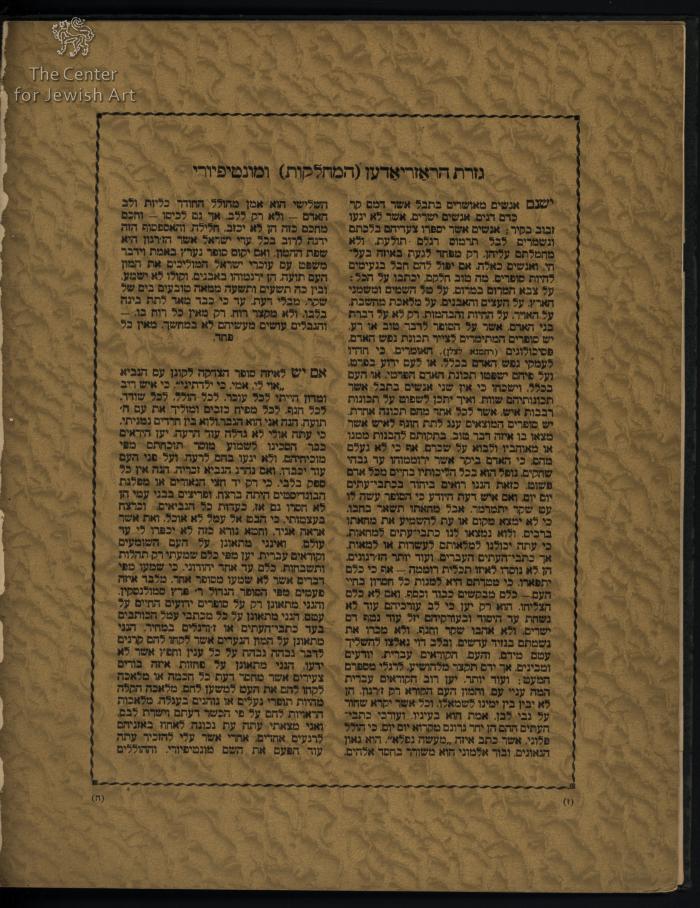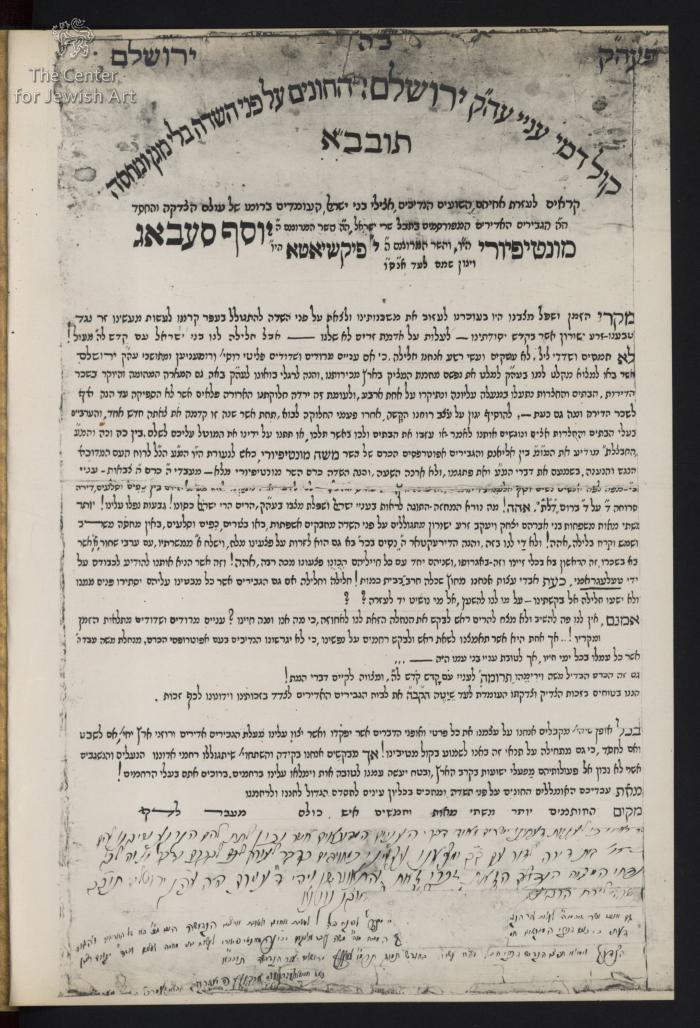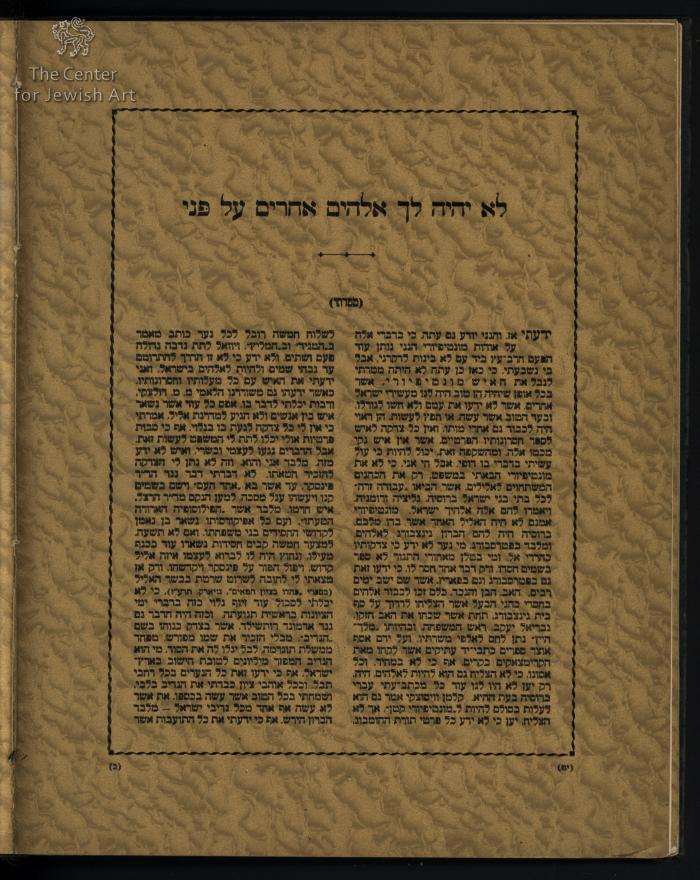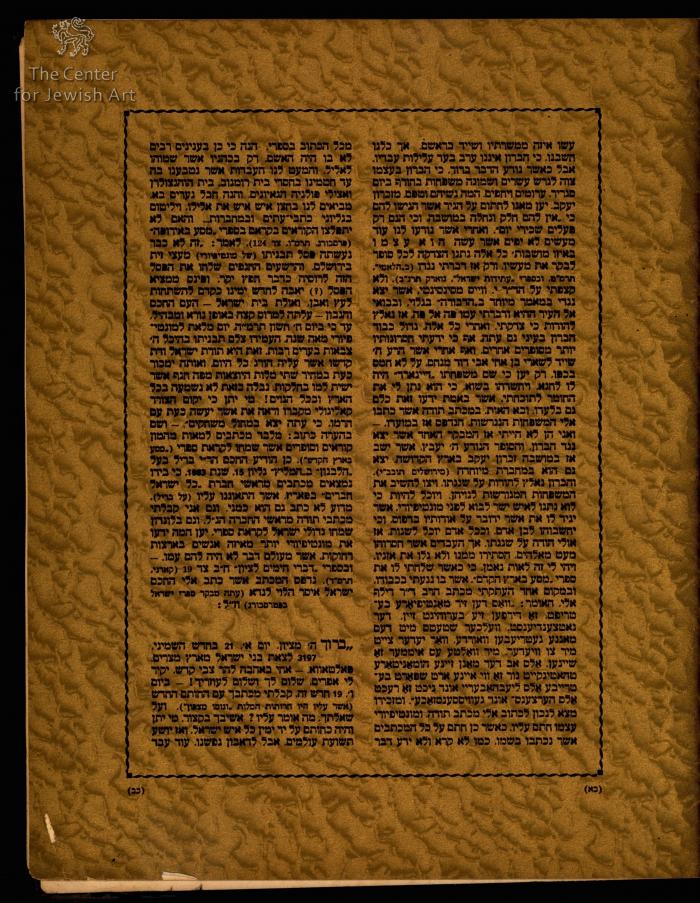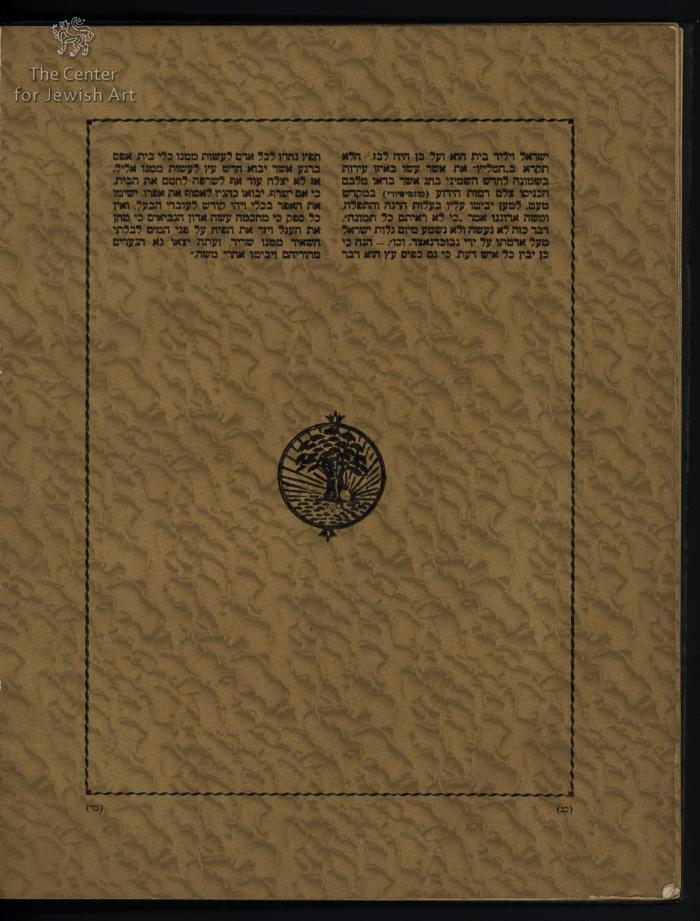Obj. ID: 39867 Megillat Setarim… Moshe Montefiori by Ephraim Deinard, New York City, 1928

sub-set tree:
This text was prepared by William Gross:
An extremely rare copy of Deinard's attack on Sir Moses Montefiore. Limited to 50 copies. The publication details Deinard's attack on Sir Moses Montefiore. He accuses Sir Moses of incompetence in his capacity as executor of the legacy of Judah Touro (1775-1854). The true target, however is not Sir Moses, rather those who have made Montefiore an object of worship and idolatry.
A violent polemicist as well as a prolific Hebrew author and avid bibliographer, Ephraim Deinard included among the targets of his attacks such disparate segments of Jewish society as Reform Judaism and Hasidism. In this rare and deluxe printed volume, Deinard vents his spleen at no less a personality than Moses Montefiore, the great nineteenth-century Anglo-Jewish philanthropist and advocate for Jews around the world.
Deinard accuses Montefiore of incompetence in his capacity as executor of the legacy of Judah Touro (1775–1854). The true target of Deinard’s screed however is not Montefiore—his genuine anger is reserved for those who have made Montefiore an “object of worship and idolatry.” Deinard may have been motivated in part by his great respect for Touro, a fellow New Orleanian.
The volume is printed in Hebrew on gold paper with watered silk pattern, ff. 1-6 framed in typographical borders and paginated by column, ff. 7r and 8r include photographic reproductions of a nineteenth-century Hebrew manuscript.
Megilat Starim… [Book of Secrets on the Works of Moses Montefiore, the Good and the Bad], by Ephraim Deinard. New York: Oriom Press, 1928. A book about Moses Montefiore and his nephew-inheritor Joseph Sebag-Montefiore and Deinard's claims pertaining to them. Printed in fifty copies only, "To be kept in libraries for remembrance and not for the popular readership…", on thick sheets, one side of which is of a special texture and gold-colored. In the beginning of the book Deinard declares that he wishes to tell how "he [Montefiore] was made the idol of the miserable innocents". Later Deinard writes that in fact Montefiore achieved nothing by his lobbying, that he was a miser and hard-hearted and that he closed his ears to the true needs of the poor of Palestine. In addition he claims that Sebag-Montefiore unjustly held in his possession property bought with the money of Judah Touro for Jerusalem's poor. At the end of the book are facsimile plates of a letter sent by Jerusalem's rabbis to Sebag-Montefiore. Deinard's claims are intertwined with his aggressive claims against Hassidism, Christianity and socialism, and he tends to accuse all of his enemies (including Montefiore) that they are tainted by all three. Ephraim Deinard (1846-1930) - bibliographer and Hebrew author, book collector and trader; one of the greatest Hebrew bibliographers of the modern era. Deinard was a historian and polemicist, considered a colorful and fascinating figure. He was born in the town of Sasmaka (currently Valdemārpils, Latvia). From a young age he embarked on numerous journeys around the world, studying different Jewish communities and collecting Hebrew books and manuscripts. In the 1880s he was the owner of a bookstore in Odessa. In 1888 he immigrated to the U.S., where he engaged in book trading; among other things, he attempted to found an agricultural Jewish settlement in Nevada. After this attempt failed, he immigrated to Palestine in 1913, settling in Ramla. There he also promoted the founding of an agricultural Jewish settlement, but in 1916 he was expelled by the Turks, forcing him to return to the United States.
24 columns, [2] plates, 36 cm.


